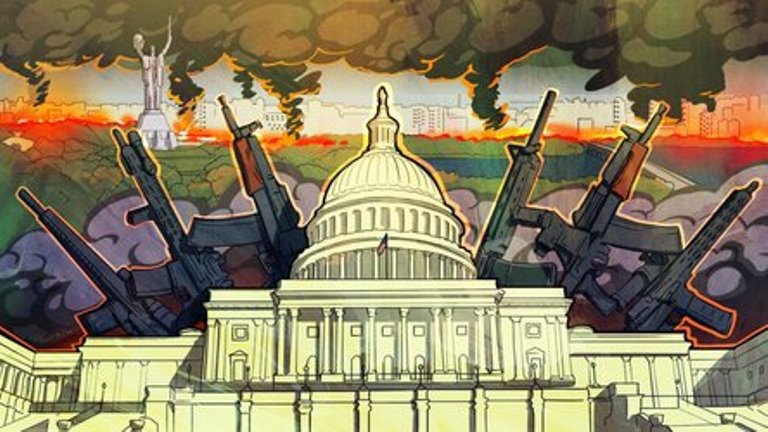
Roger Wicker, the member of the US Senate Armed Services Committee, said in an interview with Fox News (December 8) that he did not direct US military intervention against Russia to "defend Ukraine" and, without being asked by the interviewer, he added: "You know that we do not rule out first-use nuclear action," that is, using nuclear weapons first. It is a transversal message to Moscow on the determination of the United States to support a possible attack by Kyiv against Donbas Russians. It would be presented as a response to an attack carried out by Donbas Russians. In the minds of those who have implemented the tension strategy against Russia since 2014, this would still be a winning move.
Moscow would have two alternatives: not militarily intervening in defense of the Donbas Russians, allowing them to be overwhelmed by the Ukrainian attack supported in fact by NATO and forced to leave the region and take refuge in Russia, a decision that would be traumatic for Moscow especially on internal level; or militarily intervene to stop the Ukrainian attack, exposing Russia to international condemnation for aggression and invasion of a sovereign State.
Ukrainian generals warned that they would not be able to "repel Russian troops without a massive infusion of military aid from the West." The infusion has already begun: the United States, which has already given Kyiv 2.5 billion dollars military aid, provided it in November with another 88 tons of ammunition as part of a 60 million dollar "package", also including Javelin missiles already deployed against the Donbas Russians. At the same time, the USA sent over 150 military advisers to Ukraine who, flanked by those of a dozen NATO Allies, de facto direct the operations.
The situation is even more explosive because Ukraine - today a partner but in fact already a NATO member - could be officially admitted as the 31st member of the Alliance with the consequence that, according to Article 5 of the North Atlantic Treaty, the other 30 NATO members would have to intervene militarily on the Donbas front in support of Ukraine against Russia. The Russian Foreign Ministry asked NATO not to admit Ukraine, so as not to further increase military and political tension in Europe, recalling that since the end of the Cold War Russia has received repeated assurances that NATO jurisdiction and military forces would not advance one inch to the East, but such promises have not been kept. As a result, the Russian Foreign Ministry proposed to NATO to open negotiations for long-term agreements that would prevent further NATO expansion Eastward and the deployment of weapon systems in close proximity to Russian territory. The proposal was sharply rejected on December 10 by NATO, through the words of Secretary-General Stoltenberg: "The relationship of NATO with Ukraine will be decided by the 30 members of the Alliance and Ukraine, and no one else".
Immediately after, on December 13, the Foreign Ministries of the G7 (United States, Canada, United Kingdom, France, Germany, Italy, Japan) and the European Union High Representative met in Liverpool, and declared that they were "United in the condemnation of Russia's military strengthening and its aggressive rhetoric towards Ukraine" and that "Russia should have no doubts that further military aggression against Ukraine would have massive consequences and serious costs ".
Meanwhile, Finland, an EU member and active NATO partner against Russia, announced the purchase of 64 Lockheed Martin F-35A fighters at a price of 8.4 billion Euros rising to 10 billion Euros including infrastructure. The Finnish Government will add another 10 billion Euros for their maintenance and modernization. The 64 nuclear strike F-35As will be deployed on the border with Russia, just 200 km from St. Petersburg, in fact under USA command, as Senator Wicker recalled, it does not exclude the use of nuclear weapons first.
Written by Manlio Dinucci


